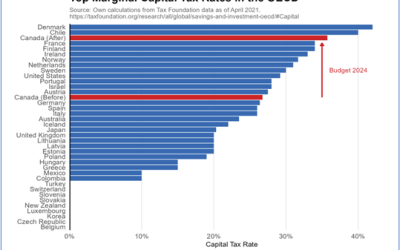Municipalities occupy pivotal economic positions as owners and managers of large public assets, principally municipal roads, water supplies and waste water facilities.
Jurisdictions comparable with Canada (the United Kingdom, Australia and New Zealand) impose asset management practice upon their local governments. New Zealand goes further and requires municipalities to fully fund asset maintenance and replacement on a yearly reporting basis.
In stark contrast, asset management practice within Canadian local government remains an optional extra. While the deficit in Canadian infrastructure has attracted considerable media attention in the past year, the real story should be the deficit in asset management that has allowed infrastructure to get so far behind.
Only 10 of the 30 municipalities surveyed in Frontier’s 2007 Local Government Performance Index reported the value of tangible assets on their 2005 balance sheets.
In a recent Federation of Canadian Municipalities poll of its members, The Danger Ahead: The Coming Collapse of Canada’s Municipal Infrastructure –only 51% or 85 out of 166 were willing and able to provide a full or partial response.
Statistics Canada’s otherwise well-prepared study The Age of Public Infrastructure: A Provincial Perspective presents survey-based findings of limited value. They are not the result of best practice engineering asset management data so give no sense of the desired risk-based economic and engineering optima or (benchmarked) performance evaluation criteria.
The limited data these studies must use indicate Canadian municipalities are failing in their duty to properly account for, fund and manage their infrastructures. So, what is to be done?
A first step would be for provincial legislators, in support of other initiatives (including Public Sector Accounting Board’s Tangible Asset Standard implementation), to enshrine within their local governments statutes that sponsor comprehensive, fully funded asset management practice. The Frontier Centre’s 2008 local government project includes further research into these important asset-activity management issues including detailed assessments of governance and legislative context.
Sources: FCPP – Local Government Performance Index 2007, Federation of Canadian Municipalities – The Danger Ahead: The Coming Collapse of Canada’s Municipal Infrastructure, Statistics Canada – Age of Public Infrastructure: A Provincial Perspective
Read in PDF format here.



